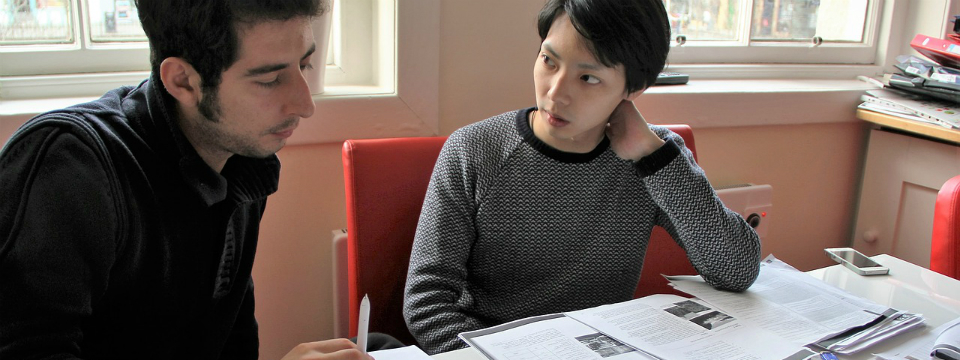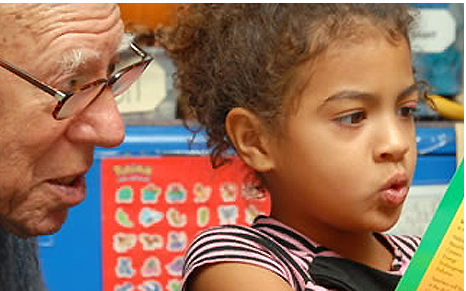New research investigates parents’ influence on success of mentoring relationship in academics
 Editor’s Note: The present study helps to further support the idea of the important role that parents play in the success of a formal mentoring relationship with regards to academic outcomes. As such, mentoring programs could potentially further boost their positive outcomes by connecting with and collaborating with parents during the mentoring process.
Editor’s Note: The present study helps to further support the idea of the important role that parents play in the success of a formal mentoring relationship with regards to academic outcomes. As such, mentoring programs could potentially further boost their positive outcomes by connecting with and collaborating with parents during the mentoring process.
Larose, S., Boisclair-Chateauvert, G., De Wit, D. J., DuBois, D., Erdem, G., & Lipman, E. L. (2018). How mentor support interacts with mother and teacher support in predicting youth academic adjustment: An investigation among youth exposed to Big Brothers Big Sisters of Canada programs. Journal of Primary Prevention, 39, 205-228. doi: 10.1007/s10935-018-0509-8
Summarized by Justin Preston
Introduction (reprinted from the Abstract)
This study examines three potential contributions (i.e., additive only, hierarchical compensatory, and hierarchical conditional) of mentor support to youth academic adjustment, taking into account interactions with support from mothers and teachers.
We derived data from a larger study of the Big Brothers Big Sisters (BBBS) of Canada community mentoring program. The sample included 427 youth (average age 9.8 years; 64% girls, 56% White) who received one-to-one community-based mentoring for at least three months. We assessed perceptions of support from mothers and teachers before the match and assessed perceptions of support from mentors five times throughout the mentoring experience.
Hierarchical linear regression analyses showed that mentor support predicted positive changes in youth academic adjustment (i.e., school attitude, academic self-efficacy, assistance seeking, and problem solving) mainly when mentees already reported high support from their mother. This finding clearly supports the conditional model and invites researchers to question the assumption that mentoring constitutes a corrective experience for young people (i.e., the compensatory model).
Implications (reprinted from the Discussion)
[O]ur paper investigated three models of how mentor support contributes to youth academic adjustment. The additive model suggests that mentor support makes a unique contribution to youth academic adjustment that cannot be explained by the support received from teachers and parents. The hierarchical compensatory model suggests that the effect of mentor support would operate only when parental and/or teacher support is lacking. According to the hierarchical conditional model, the effect of mentor support operates only if parental and/or teacher support are of sufficient quality.
Our examination of the three models showed that, after controlling for individual differences in maternal and teacher support, emotional support in mentoring predicted positive changes in feelings of academic self-efficacy and coping strategies (i.e., assistance seeking and problem solving). However, mentor support did not directly predict school attitude (as discussed further below).
Although these initial results suggest that mentoring support makes a unique and independent contribution to youth academic adjustment, all our tested regression models showed that the strength of these predictive associations varied systematically according to the perceived quality of emotional support in the relationship with the mother.
We found hierarchical conditional effects for the four academic adjustment indicators (school attitude, academic self-efficacy, assistance seeking, and problem solving). BBBS mentor support predicted changes in academic adjustment mainly when the mother was highly supportive. This result is consistent with the findings of studies that have shown that a minimum of parental support was required for mentor support to make a difference in youth academic adjustment.
Two further results of this study merit attention. In our exploration of the interaction effects, we also found a hierarchical compensatory effect. Emotional support by a BBBS mentor predicted positive changes in school attitude in youth who received little support from both mother and teachers. Although this prediction was weaker than that for youth with a highly supportive mother and teachers, this finding suggests that BBBS mentor support also help at-risk youth be more liable to develop a positive school attitude.
In conclusion, this study clearly shows that emotional support by a BBBS mentor interacts with support from the mother to predict academic adjustment in youth. It appears that the effects of BBBS support on academic adjustment are conditional on the presence of and quality of maternal support.
To access the original research, click here.










